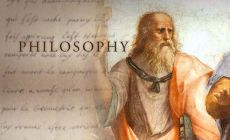Read the following passage and mark the letter A, B, C, or D on your answer sheet to indicate the correct answer to each of the following questions
According to sociologists, there are several different ways in which a person may become recognized as the leader of a social group in the United States. In the family, traditional cultural patterns confer leadership on one or both of the parents. In other cases, such as friendship groups, one or more persons may gradually emerge as leaders, although there is no formal process of selection. In larger groups, leaders are usually chosen formally through election or recruitment.
Although leaders are often thought to be people with unusual personal ability, decades of research have failed to produce consistent evidence that there is any category of “natural leaders.” It seems that there is no set of personal qualities that all leaders have in common; rather, virtually any person may be recognized as a leader if the person has qualities that meet the needs of that particular group.
Furthermore, although it is commonly supposed that social groups have a single leader, research suggests that there are typically two different leadership roles that are held by different individuals. Instrumental leadership is leadership that emphasizes the completion of tasks by a social group. Group members look to instrumental leaders to “get things” done. Expressive leadership, on the other hand, is leadership that emphasizes the collective well¬being of a social group’s member. Expressive leader are less concerned with the overall goals of the group than with providing emotional support to group members and attempting to minimize tension and conflict among them. Group members expect expressive leaders to maintain stable relationships within the group and provide support to individual members. Instrumental leaders are likely to have a rather secondary relationship to other group members. They give orders and may discipline group members who inhibit attainment of the groups goals. Expressive leaders cultivate a more personal or primary relationship to others in the group. They offer sympathy when someone experiences difficulties or is subjected to discipline, are quick to lighten a serious moment with humor, and try to resolve issues that threaten to divide the group. As the differences in these two roles suggest, expressive leaders generally receive more personal affection from group members; instrumental leaders, if they are successful in promoting group goals, may enjoy a more distant respect.
Câu 38 : What does the passage mainly discuss?
Hãy suy nghĩ và trả lời câu hỏi trước khi xem đáp án
Lời giải:
Báo saiCâu hỏi: Bài viết tập trung thảo luận vấn đề gì?
A. Cách thức mà sự lãnh đạo khác nhau trong các nhóm nhỏ và nhóm lớn.
B. Vai trò của người lãnh đạo trong các nhóm xã hội.
C. Các vấn đề mà các nhà lãnh đạo phải đối mặt.
D. Cách thức mà các nhóm xã hội tìm ra ai là người lãnh đạo họ.
Nội dung cả bài xoay quanh thảo luận về người lãnh đạo trong nhóm, vai trò và cách thức lãnh đạo. Đáp án đúng là B.
Loại A và D vì chỉ là ý nhỏ của đoạn 1; loại C do không đề cập nhiều trong bài\
Chọn B
Câu 39 : The passage mentions all of the following ways by which people can become leaders EXCEPT___________
Hãy suy nghĩ và trả lời câu hỏi trước khi xem đáp án
Lời giải:
Báo saiCâu hỏi: Bài viết đề cập tất cả các cách sau để người ta có thể trở thành người lãnh đạo TRỪ____________
A. tuyển dụng
B. sự huấn luyện lãnh đạo riêng biệt
C. kiểu mẫu văn hóa truyền thống
D. tiến trình bầu cử trang trọng
Đây là câu hỏi có chứa từ phủ định. Thông tin tìm ở đoạn 1, dùng phương pháp loại trừ, cách thức nào không được nhắc trong bài sẽ là đáp án chọn. Loại các phương án A, C, D do chúng lần lượt xuất hiện trong các câu:
In the family, traditional cultural patterns (phương án C) confer leadership on one or both of the parents.
In larger groups, leaders are usually chosen formally through election (phương án D) or recruitment (phương án A). Trong gia đình, cách thức lãnh đạo truyền thống chọn lãnh đạo có thể là bố, mẹ hoặc cả hai. Trong các nhóm lớn hơn, những người lãnh đạo thường được chọn một cách chính thống thông qua bầu cử hoặc tuyển dụng.
Chọn B
Câu 40 : Which of the following statements about leadership can be inferred from paragraph 2?
Hãy suy nghĩ và trả lời câu hỏi trước khi xem đáp án
Lời giải:
Báo saiCâu hỏi: Phát biểu nào dưới đây về sự lãnh đạo mà có thể được suy ra từ đoạn 2:
A. Một người có thể học làm người lãnh đạo hiệu quả tốt nhất bằng việc học các nghiên cứu về lĩnh vực lãnh đạo.
B. Hầu hết mọi người đều khát khao trở thành lãnh đạo nhưng có quá ít bằng chứng về năng lực.
C. Một người có thể là lãnh đạo tốt của nhóm này nhưng chưa chắc đã là lãnh đạo hiệu quả ở một nhóm khác.
D. Có quá ít người thành công trong việc chia sẻ sự lãnh đạo với một người khác.
Đoạn 2 nhấn mạnh không có những phẩm chất chung cho tất cả các nhà lãnh đạo của các nhóm “there is no set of personal qualities that all leaders have in common”; Mỗi nhóm khác nhau lại có yêu cầu riêng và người lãnh đạo của nhóm ấy phải hội tụ đủ các phẩm chất riêng biệt ấy để dẫn dắt nhóm của mình “any person may be recognized as a leader if the person has qualities that meet the needs of that particular group”
Xâu chuỗi các ý lại ta có thể suy ra phương án C là phù hợp nhất với thông tin ở đoạn 2.
Chọn C
Đề thi giữa HK1 môn Tiếng Anh 9 năm 2023 - 2024
Trường THCS Tân Bình














